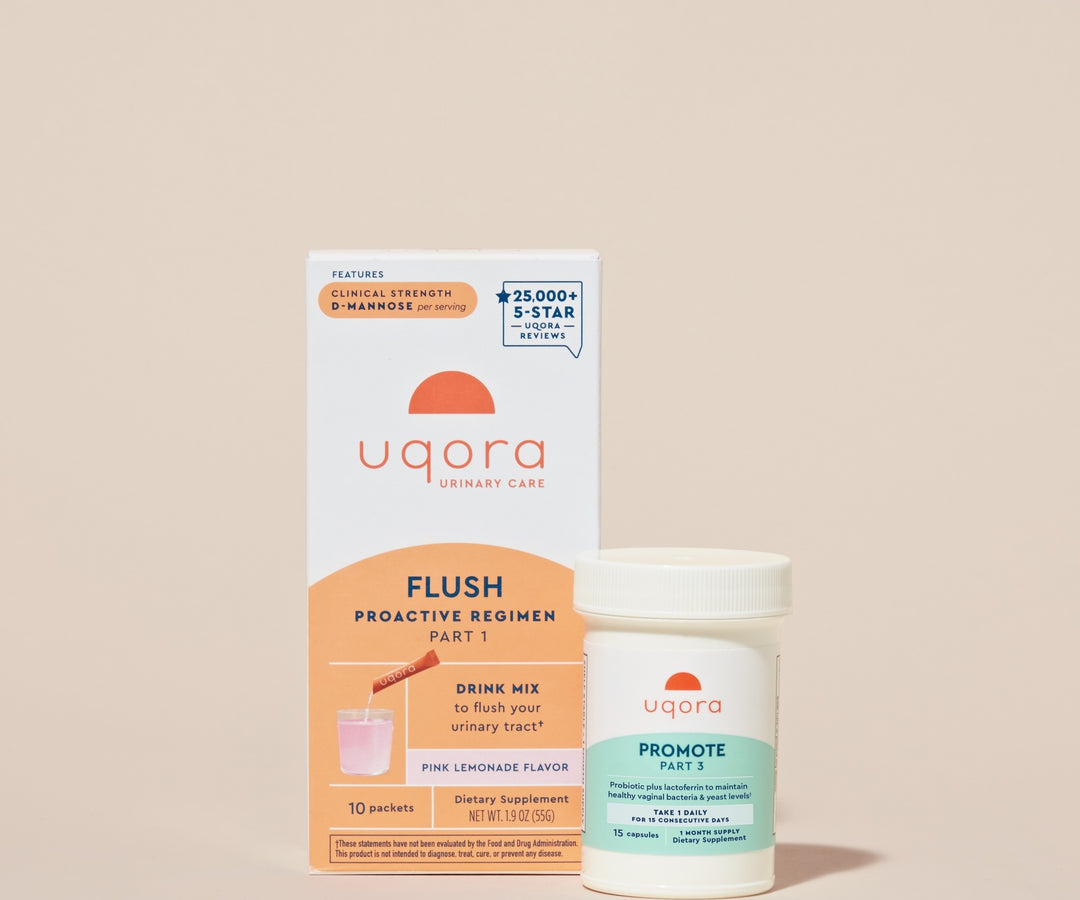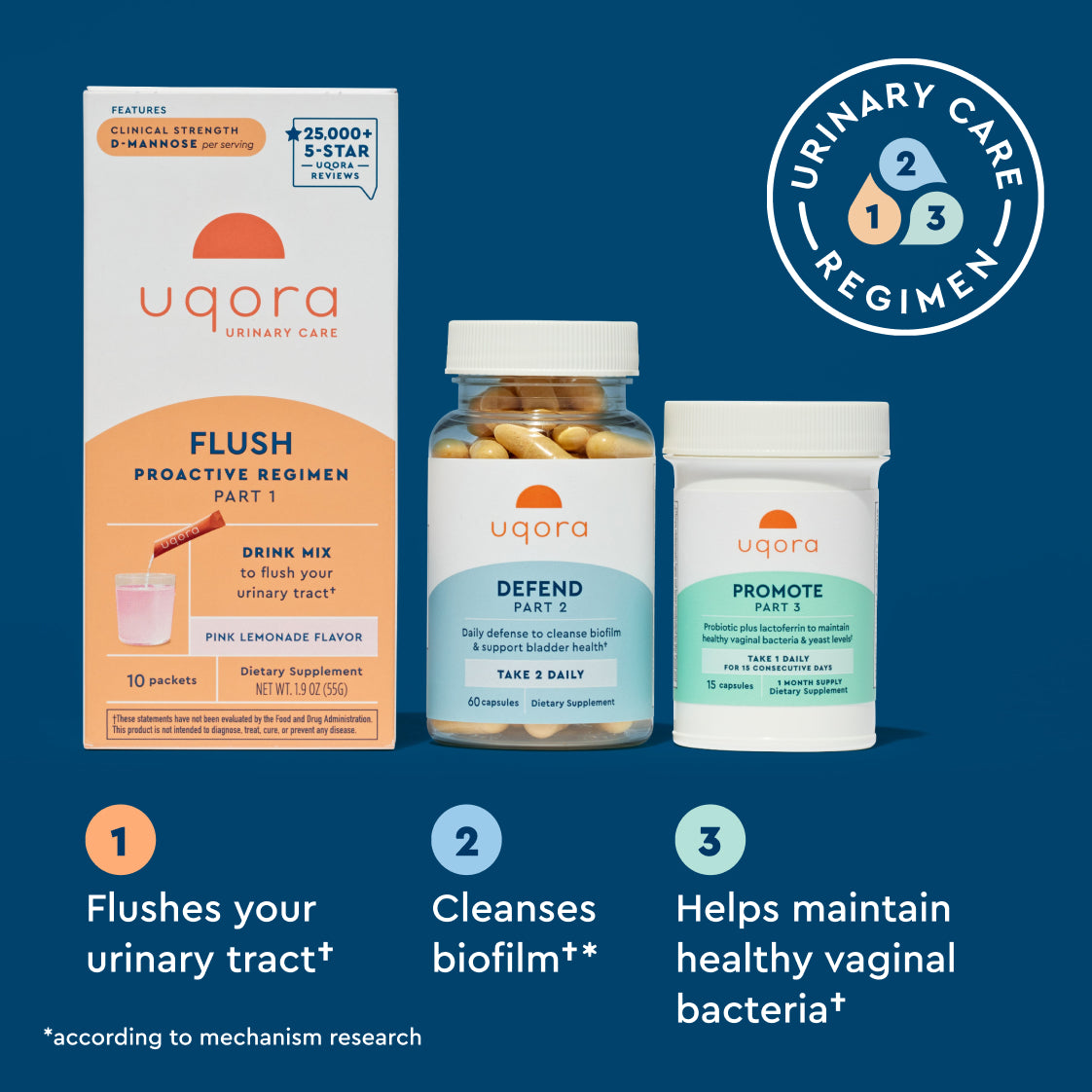It is common to develop UTIs following sexual intercourse. However, there are certain steps you can take to reduce the likelihood of developing a urinary tract infection after sex, including post-sex urination (urinating after sex), lubrication, proper hydration, good hygiene, and promoting proactive urogenital health.(1)
A urinary tract infection (UTI) is a bacterial infection that can affect your urethra, bladder, kidneys, and ureters. Although UTIs can affect several parts of the urinary system, they are most commonly the result of an infection within the bladder. There are many reasons UTIs can occur, but sex is a common trigger for many females.
Why Do I Get UTIs After Sex?
A UTI develops following the introduction of bacteria into the urethra, after bacteria enters through the urethra – bacteria travel up the urinary tract and cause an infection.
For females, the urethra is located in close proximity to the genitals and anus, so it can be easy for bacteria to enter the urethra during sex. However, it’s important to note that UTIs are not sexually transmitted diseases, so they can not be transferred from one person to another.
This is why peeing after sex is important. Urinating is our first line of defense to flush out any bacteria that may have been introduced to the urinary tract after sex. So, failing to urinate after sex may allow more time for any introduced bacteria to multiply and cause an infection (2). Additionally, holding urine for long periods of time (3), especially following sex, can increase the risk of infection.
Are Females More Likely Than Males to Get a UTI From Sex?
Yes, females are more likely than males to get a UTI after sex. Males are still susceptible to developing UTIs from intercourse, but anatomical differences between the sexes make women more prone to infections. In fact, during reproductive years, females are 50 times more likely than males to have a urinary tract infection.(4)
Here are a few reasons why females more prone to post-sex UTIs:
- Shorter urethra: Females have shorter urethras than males, meaning bacteria have a shorter distance to travel to reach the bladder.
- Proximity of urethra to anus: The female urethra is close to the vagina opening and anus, making bacterial contact from these areas more likely.
- Hormonal factors: During the menstrual cycle or pregnancy, hormonal changes can potentially alter the environment of the vaginal microbiome, which can impact the urinary tract and can lead to a higher susceptibility to infection.
Are There Other Reasons UTIs Can Develop?
While sexual activity can result in urinary tract health issues, there are numerous other factors unrelated to sex that can contribute to UTIs. It’s important to remember that although these things can lead to UTI susceptibility, it doesn’t mean you’re doing anything wrong. Some of us are just more prone to UTIs than others, even when it feels like we’re doing everything right.
Here are some other common UTI causes:
























